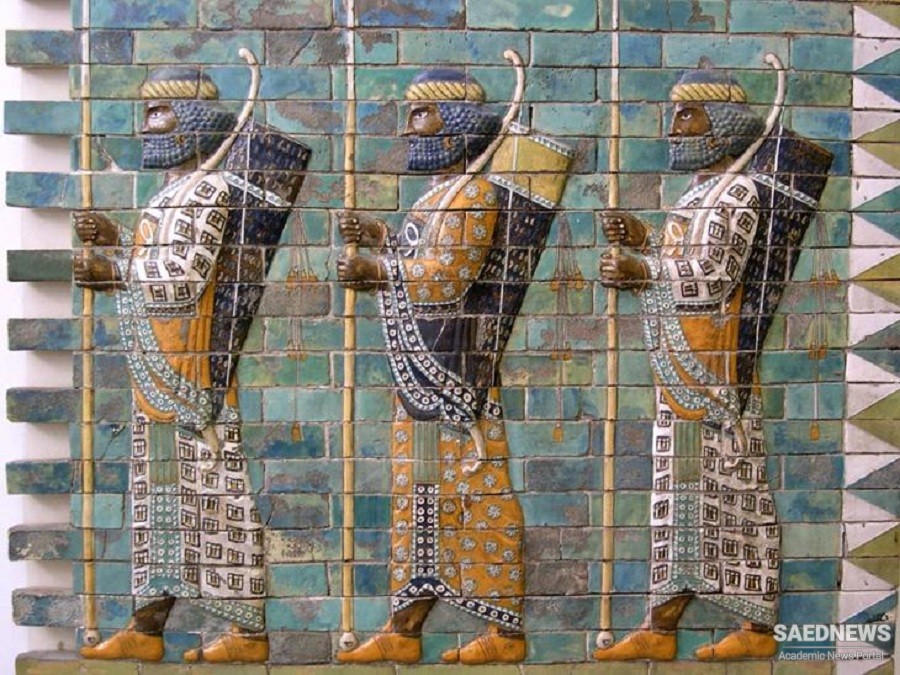Cyaxares’ great- grandson, Cyrus II, later called the Great, began his rise as conqueror from the Persian kingdom of Anshan, which he inherited from his father in 559 bc. After overthrowing his grandfather and establishing himself as the new ruler of combined Persian and Median kingdoms, Cyrus spent much of the first decade of his reign consolidating control over the Medes’ former dominions as the new Persian Empire. To do this, the new king built a standing army loyal to him with ten thousand Persian infantry armed primarily with bow, spear, and a wood- and- wicker shield; ten thousand Persian cavalrymen bearing bows, javelins, and short swords; and perhaps a similar force of Medes. For a campaign, Cyrus expanded his imperial army by incorporating warriors from his subject peoples and adding more Medes, who had second position in the empire and provided many of the imperial generals. Cyrus increased the emphasis on training and discipline in his standing army. He also used his early batt les to refi ne the Median way of war, which helped to make his force more responsive and maneuverable on the batt lefi eld. His first major challenger was the famously wealthy King Croesus of Lydia in western Asia Minor. Aft er some initial indecisive batt les, Cyrus’s smaller army met the Lydian forces, who were backed by Egyptian, Spartan, and Babylonian allies, near Croesus’s capital of Sardis on the plain of Thymbra in early 546 bc. The batt le was notable because Cyrus organized his army in depth in a great square formation in the fi rst recorded deviation from the normal practice of forming a line parallel to the enemy front. He deployed his best infantry, cavalry, and chariots to protect his fl anks while placing his archers within the large square of infantrymen. On the advice of Hypargus, the Median general commanding his army, Cyrus created an improvised camel corps from his baggage train and placed the animals in the front of his formation. The unaccustomed smell and sight of the camels was reported to have thrown the Lydian cavalry into disarray.


 Cyrus the Younger Assembles the Army to Regain Sovereignty
Cyrus the Younger Assembles the Army to Regain Sovereignty














































